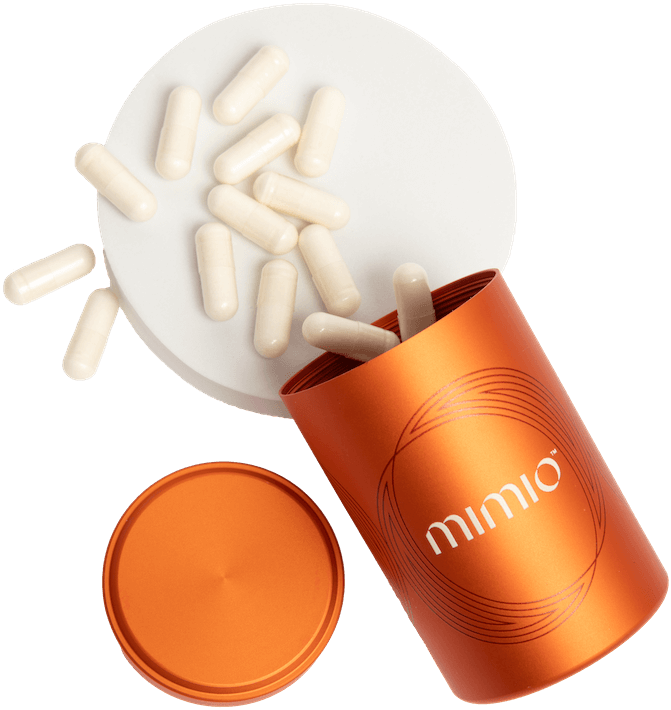Aging is awesome—or at least it should be. But what if the sneaky culprit behind many of our aging woes isn’t just the ticking clock, but a simmering, invisible fire within? Meet inflammaging: a slow-burning, chronic inflammation that accelerates the aging process. Let’s dive into what inflammaging is, what causes it, and how it impacts our health.
What Is Inflammaging?
Inflammaging is a blend of two words: “inflammation” and “aging.” It describes the low-grade, chronic inflammation that silently chips away at our health as we age. Unlike the helpful inflammation that kicks in when you get a cut or a cold, inflammaging is like a perpetual, slow-burning fire that damages cells and tissues over time.
Inflammaging Definition and How It Affects Aging
The term 'inflammaging definition' refers specifically to this concept, combining 'inflammation' and 'aging' to highlight a state of ongoing, smoldering inflammation that contributes to various age-related diseases and conditions. This definition encapsulates the essence of inflammaging, emphasizing its role in the gradual deterioration of bodily functions and increased vulnerability to chronic diseases as we grow older.
Key Points:
- Inflammaging is a combination of the words inflammation and aging
- Inflammaging is the persistent, low-level inflammation associated with aging.
- Inflammaging plays a significant role in accelerating the aging process and contributing to age-related diseases.
- Unlike acute inflammation that helps heal colds or cuts, inflammaging harms your body over time.
What Causes Inflammaging?
Aging is inevitable, but inflammaging doesn’t have to be. Here are the main contributors that stoke the flames of inflammaging:
- Cellular Senescence Cellular decay and cells dying is very natural. However, as we age, some cells don’t die when they should. Instead, they turn into “zombie” cells, sticking around and pumping out inflammatory signals that disrupt nearby healthy cells. Think of them as that one coworker who’s always bringing down the team’s mood.
- Mitochondrial Dysfunction Mitochondria are the powerhouses of your cells, but like any good battery, they lose their juice over time. When mitochondria start malfunctioning, they produce harmful byproducts like reactive oxygen species (ROS), which contribute to cellular damage and inflammation.
- Immune System Decline Your immune system is like a well-trained security team that becomes a little too lax with age. An unhealthy immune system is less effective at managing inflammation, leading to a chronic inflammatory state.
- Microbiome Imbalance Your gut microbiome—a bustling metropolis of bacteria—can shift out of balance as you age. A disrupted microbiome can leak inflammatory molecules into the bloodstream, fueling inflammaging.
- Lifestyle Factors Poor diet, lack of exercise, smoking, and chronic stress are like pouring gasoline on the inflammaging fire. These lifestyle choices accelerate inflammation and age your cells faster than they would naturally.
How Inflammaging Impacts Your Health
Inflammaging doesn’t just wrinkle your skin; it’s linked to a host of age-related conditions that can impact your quality of life. Here’s how:
- Cardiovascular Disease: Inflammaging can lead to the stiffening of arteries, increasing the risk of heart disease and stroke.
- Cognitive Decline: Chronic inflammation has been linked to neurodegenerative diseases like Alzheimer’s and Parkinson’s, making inflammaging a key player in brain aging.
- Type 2 Diabetes: Inflammaging can disrupt your body’s insulin signaling, leading to higher blood sugar levels and increased risk of type 2 diabetes.
- Cancer: Persistent inflammation can damage DNA and lead to mutations, increasing the risk of certain cancers.
- Joint Issues: Inflammaging can contribute to the wear and tear of cartilage, leading to conditions like osteoarthritis.
Managing Inflammaging: Tips for Keeping the Fire in Check
The good news? You’re not entirely at the mercy of inflammaging. Here are some actionable ways to keep chronic inflammation—and aging—at bay:
- Eat the Rainbow: Load up on fruits, vegetables, and whole grains. Foods rich in antioxidants help neutralize the damaging free radicals that fuel inflammaging.
- Get Moving: Regular physical activity reduces inflammation markers and improves overall health. Aim for at least 30 minutes of moderate exercise most days of the week.
- Prioritize Sleep: Sleep isn’t just beauty rest; it’s essential for immune function and inflammation regulation. Aim for 7-9 hours of quality sleep per night.
- Manage Stress: Chronic stress releases hormones like cortisol that can trigger inflammation. Practice relaxation techniques like meditation, deep breathing, or yoga to keep your mind and body balanced.
- Consider Supplements: Some supplements, like Omega-3 fatty acids, CoQ10, and fasting mimetics like the Mimio Biomimetic Cell Care, are designed to help manage inflammation and support healthy aging by mimicking the cellular benefits of fasting.
The Future of Healthy Aging
Inflammaging might sound daunting, but understanding it is the first step toward taking control. With lifestyle changes, proper diet, and innovative products like Mimio Biomimetic Cell Care, you can help extinguish the fire of inflammaging and age in a healthier, more vibrant way.
Remember, aging is a journey, not a destination. The goal isn’t to stop the clock, but to keep living your best life at every tick.



